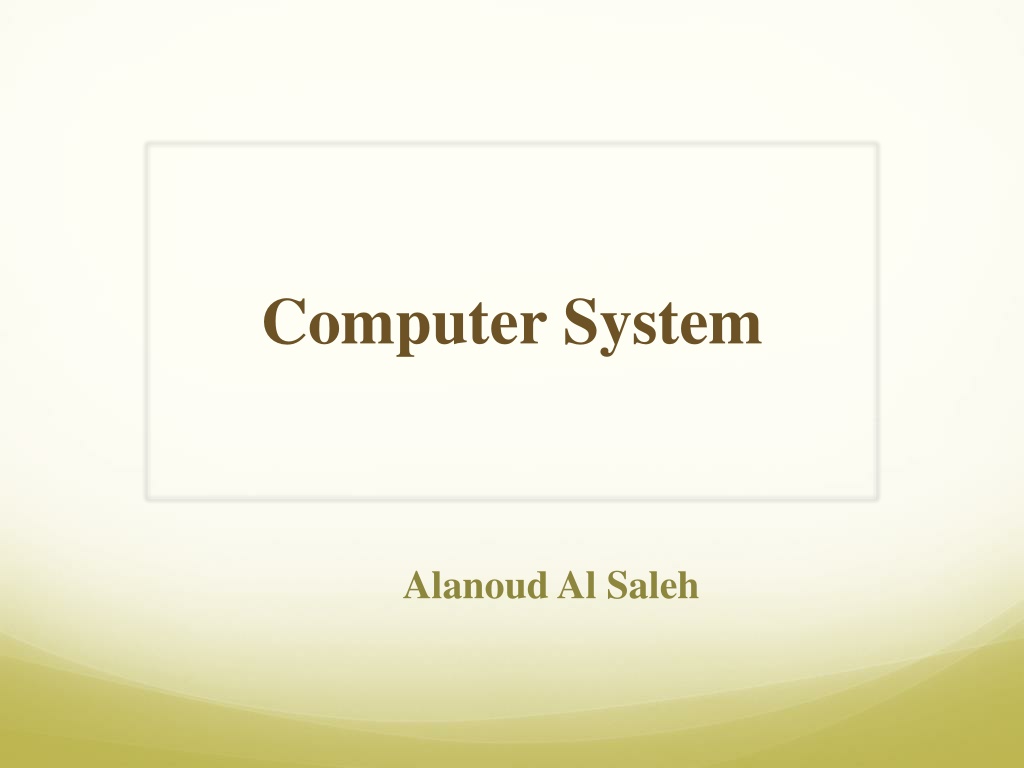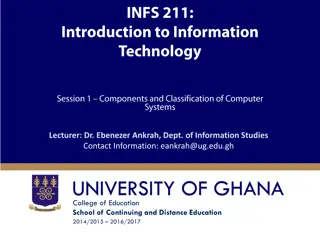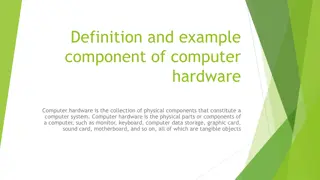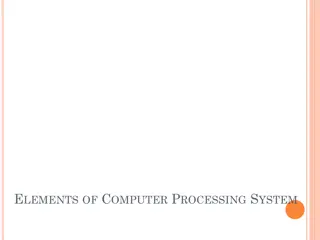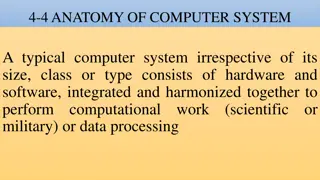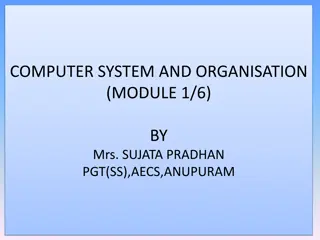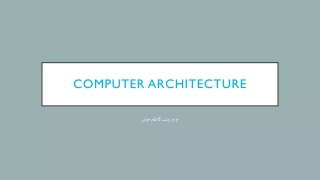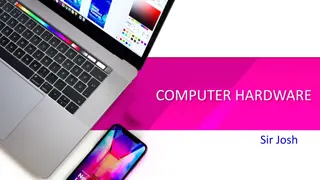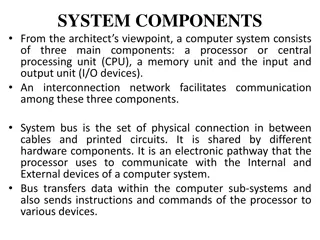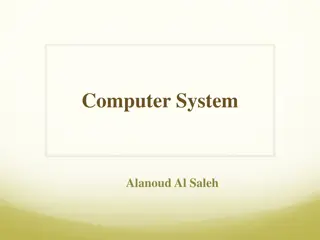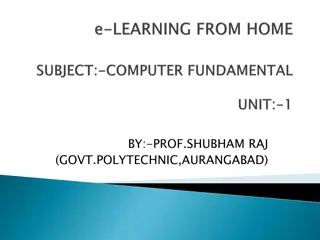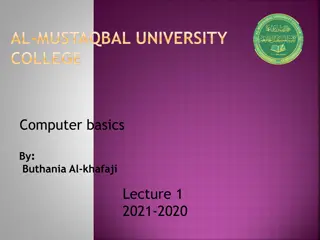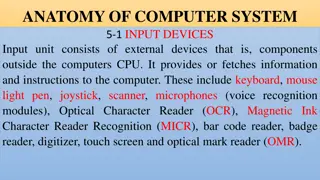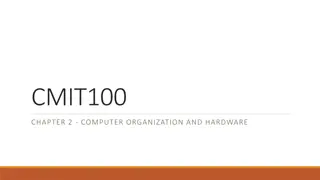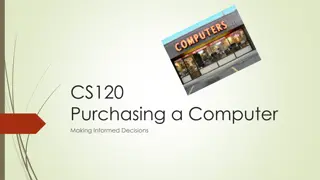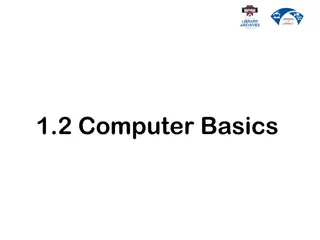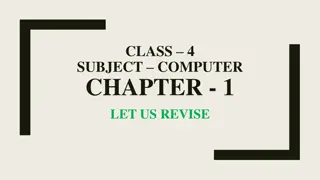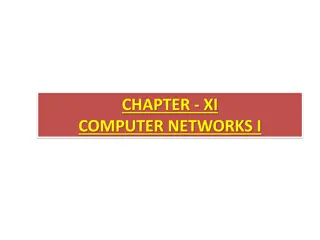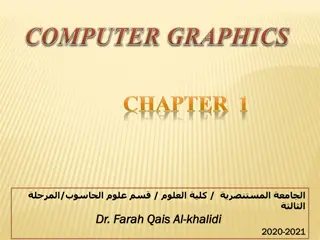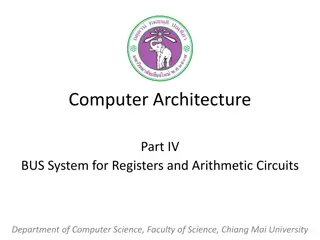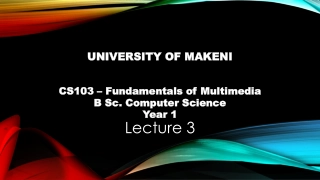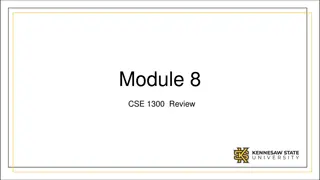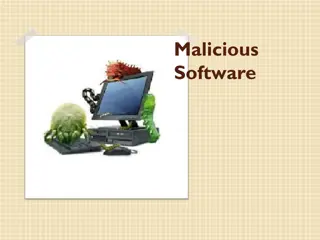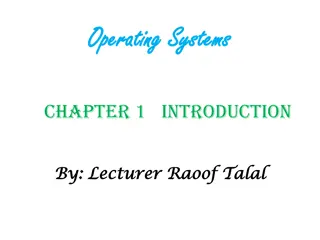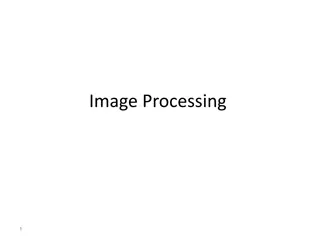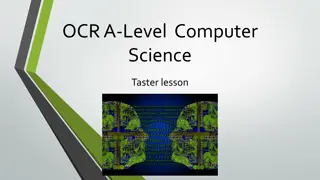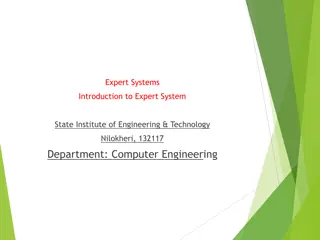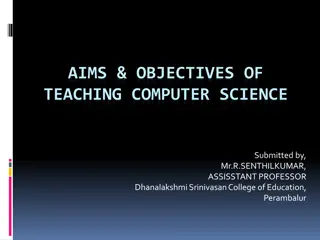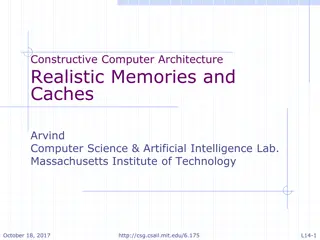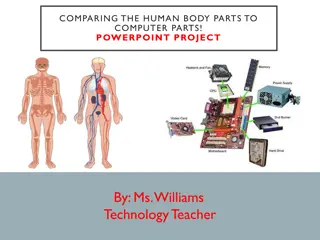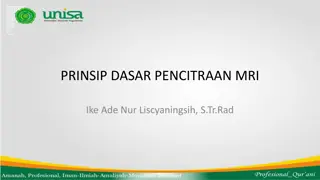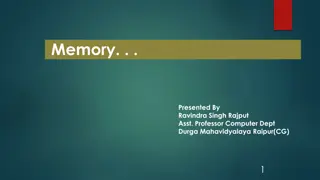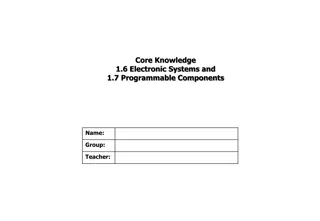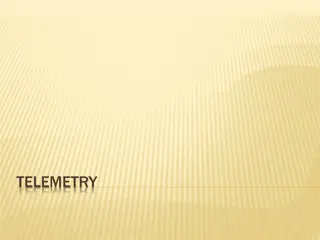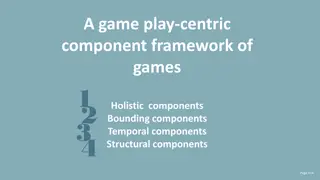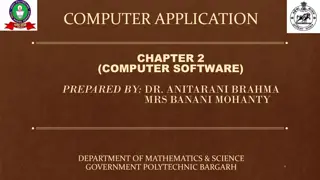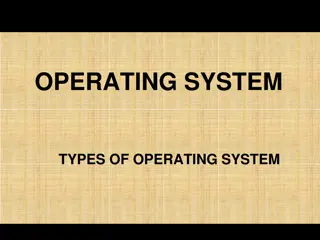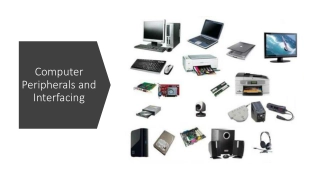Understanding Computer Systems and Components
Computer systems are high-speed electronic machines that process data and instructions to solve problems. They consist of hardware and software elements, with input and output devices for interaction. Key concepts include binary system, byte measurement units, hardware organization, and input hardware devices. This content delves into the components, functions, and organization of computer systems.
Download Presentation

Please find below an Image/Link to download the presentation.
The content on the website is provided AS IS for your information and personal use only. It may not be sold, licensed, or shared on other websites without obtaining consent from the author. Download presentation by click this link. If you encounter any issues during the download, it is possible that the publisher has removed the file from their server.
E N D
Presentation Transcript
Computer System Alanoud Al Saleh
Computer systems Are defined as: A machine for solving problems. Specifically the modern computer is high-speed electronic computational machine that accepts information in the form of data and instructions through some input device and processes this information with arithmetic and logic operation from a program stored in its memory. The results of processing can be displayed stored or recovered using suitable output devices or transmitted to another location.
Computer system elements Hardware Software Computer users Computer System.ppt
Computer system elements - the physical components of the computer, including the computer itself and matched peripherals. - the programs that run the computer. Hardware Software - are facts, or unorganized raw materials, which can be made up of words, numbers, images, or sounds. Data data that has been processed. Information Computer System.ppt
Binary System Bit - the smallest unit of data that a computer uses (microprocessors) . It can be used to represent two states of information, such as Yes or No(0,1). Byte - is equal to 8 Bits. A Byte can represent 256 states of information, for example, numbers or a combination of numbers and letters. 1 Byte could be equal to one character. Computer System.ppt
Bits on Bytes 1 byte = 8 bits 1 kilobyte (K / Kb) = 1,024 bytes 1 megabyte (M / MB) = 1,048,576 bytes 1 gigabyte (G / GB) = 1,073,741,824 bytes 1 terabyte (T / TB) = 1,099,511,627,776 bytes Computer System.ppt
Hardware organization Processing Output Input
Organization of a computer It includes at least five hardware components: -An input device -A central processing unit (CPU) -Internal memory -An out put device -An external memory or storage
Input hardware Refers to input devices from which information can be sent to the processor: Example: -Keyboards -mouse -tochscreen,etc.
Processing hardware -CPU -Internal memory
CPU Small chip found on the motherboard.It is the brain of the computer, it consists of a control unit that direct the activities of the machine and an arithmetic-logic unit (ALU) to perform mathematical calculations and data Processing ( transforming data into information) . Microprocessor The internal memory or main memory for the permanent storage of software instructions and data.
Output devices After data is processed, results are sent to an output device in the form of hard or soft copy. Example: Hardcopy output devices is the printer. Softcopy output devices is when the results are displayed on a monitor for direct viewing.
External storage devices Finally, processing results can be stored on external storage devices These are: -Magnetic storage devices such as disks and tapes -Optical storage devices
Secondary storage -optical disk -Magnetic tape -Magnetic disk Input devices: -Keyboard -Mouse -Touch screen -Etc Output devices -Video monitor -Printers -Plotters Data flow Central processing unit -control unit -arithmetic-logic unit Data flow Primary storage Control signal Control signal
Categories of Software System Software programs that take control of the PC on start-up, and then play a central role in everything that happens within a computer system by managing, maintaining, and controlling computer resources. Application Software designed and created to perform specific personal, business, scientific processing tasks. Computer System.ppt
Application Software Word Processing a text editing program. Types of Word Processors WordStar Word perfect Microsoft Word Computer System.ppt
Application Software Electronic Spreadsheet is a program replacing the traditional financial modeling tools that offer modern improvements in ease of creating, editing, and using of financial models and graphical representations. Kinds of Electronic Spreadsheet Lotus 1-2-3 MS EXCEL QUATTRO FRAMEWORK Computer System.ppt
Historical perspective First generation computers (1951-1958) Second generation computers (1959-1963) Third generation computers (1963-1970) Fourth generation computers (1971-1987) Fifth generation computers (1987-present) Computer System.ppt
